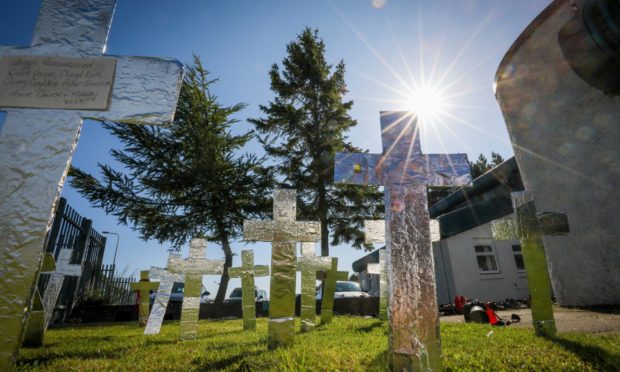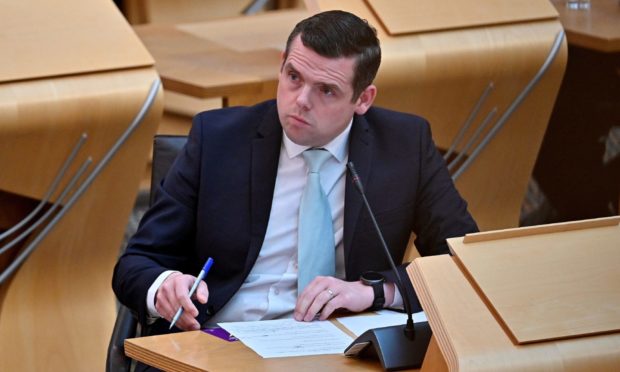Spending on rehabilitation facilities in Dundee and Glasgow have been described as a postcode lottery by a recovery advocacy group.
In a report released on Friday, Faces and Voices of Recovery Group (Favor) published information on the country’s residential rehabilitation landscape.
The group found only 13% of of rehab placements are funded by the Scottish Government through alcohol and drug partnerships.
Scotland CEO Annemarie Ward warned of “shocking gaps” in the country’s rehab facilities.
The Scottish Conservatives have called on the Scottish Government to support their Right to Recovery Bill when it is brought to parliament this session.
Dundee has the highest rate of drug death in Scotland, which in turn has the highest rate in Western Europe.
Postcode lottery
Ms Ward highlights the differences in accountability in Scotland because of the “autonomous” nature which exist between health boards.
Favor argue that because “each area is autonomous, how they administer these
services is down to them and there seems to be no unification overall and so someone’s
experience in a place like Inverclyde is vastly different to someone in Midlothian, and so forth”.
Ms Ward added: “This new report shows the shocking gaps in funding and provision of rehabilitation services across Scotland.
“A shameful postcode lottery exists where some people are able to quickly access the treatment they need while others wait years to be treated fairly, if at all.
“The most shocking and shameful thing is that the postcode lottery is often worse in areas where drug deaths are most prevalent, particularly around Glasgow and Dundee.
“The Scottish Government have recognised the problem in their words but we do still need action to improve the situation on the ground.
“Despite the effectiveness of residential rehabilitation having been widely evidenced as a viable treatment option, there seems to be systemic reluctance from many professionals and local authorities to put in place procedures that would allow service users direct access to residential rehabilitation.
“There are many barriers to access. Many people are not informed of rehabilitation as a treatment option and, in some areas, there has been little to no rehabilitation placements in decades, if at all.
“We are pushing for a Right to Recovery Bill to ensure that everyone who needs treatment can get it. That should not be a controversial statement.
“Drug deaths have become Scotland’s shame but if we enshrine the right to residential rehabilitation and other treatment services in law, we can save lives and end this crisis.”
Conservatives to Recovery Bill
Scottish Conservative leader Douglas Ross said the Right to Recovery (Scotland) Bill is a “serious, credible proposal” that will end the “disgraceful situation where people seeking to get off drugs can’t actually get the treatment they need”.
The Bill seeks to ensure anyone dealing with substance misuse or drug addiction is able to “quickly access their preferred treatment option, unless a medical professional deems it would be harmful”.
This would give people a right to residential or community-based rehabilitation and detoxification services.
Scottish Conservative Leader Douglas Ross said: “We have worked with frontline experts to develop this proposal so we can finally make sure everyone gets the treatment they need to get off drugs and get better.
“We are determined to tackle Scotland’s drug death crisis and stop Nicola Sturgeon taking her ‘eye off the ball’ on this national shame ever again.
“This Bill is still at an early stage but it is a serious, credible proposal. It would put an end to the disgraceful situation where people seeking to get off drugs can’t actually get the treatment they need.
“I urge the SNP Government to back this Bill and we will work constructively with other parties and organisations across the political spectrum to make this a reality.”
More money promised
A Scottish Government spokesperson said: “We are working to ensure residential rehabilitation is available for everyone who needs it in every part of the country.
“That’s why we are providing additional funding of £250 million over the next five years to tackle the drug deaths emergency in Scotland. £100 million will support further investment and expansion of residential rehabilitation and associated aftercare.
“This will get more people into support services and treatment to save and improve lives.”

